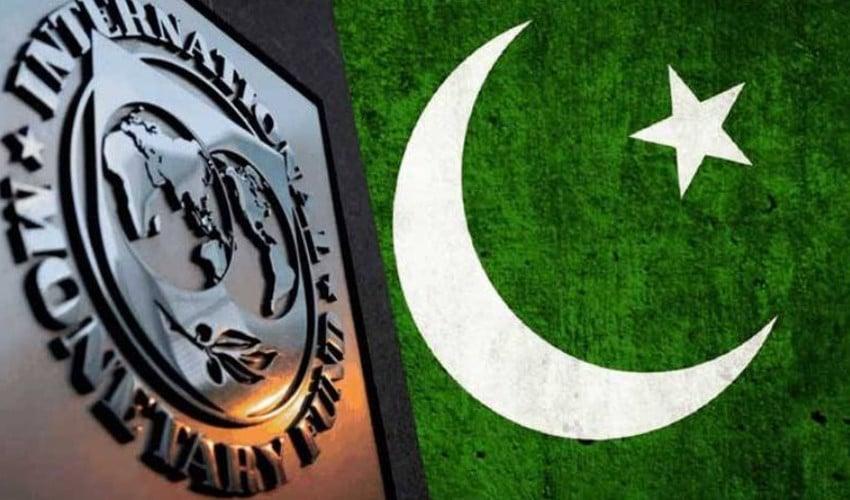Islamabad:
The Government has accepted the main demand of the International Monetary Fund (IMF) to completely open its economy to foreign competition by reducing effective average import rates in a third to only 7.1% for five years, particularly to open the highly restricted car sector.
Minerals and car sectors will be the two key areas for economic liberalization under the IMF umbrella, government sources said. The disturbing province of Baluchistan of Pakistan is rich in minerals.
With the new understanding reached on Tuesday, Pakistan and the IMF have approached an agreement at the personnel level, a previous requirement to present the country’s case to the Executive Board for approval of those over $ 1 billion of loan sections, government sources said.
The negative impact of the reduction of one third on the average tariffs would be RS278 billion in tax revenues, which is expected to be compensated by an increase in economic activity driven by trade liberalization.
The government agreed to completely abolish additional customs tasks, reduce regulatory tasks by 75%and withdraw concessions under the fifth schedule of the Customs Law, according to sources.
It has been agreed that the weighted average applied tariffs will be reduced from current 10.6% to only 7.1% for five years, as of July of this year, they added. This 33% reduction in tariffs will completely open the economy to foreign competition.
Pakistan’s agreement with the IMF on trade liberalization comes at a time when the world is closing its borders to foreign companies, particularly the United States, the main shareholder of the IMF.
Pakistan’s companies are not in tune with foreign competition and have grown under the umbrella of tariff protection at the expense of consumers. The weighted average rates of southern Asia are approximately 5.3%, while the average Asia is 7.5%.
The sources said that the understanding will be implemented through a new national tariff policy that will be implemented in July of this year and a new development and export policy of the automotive industry that will be implemented from July 2026.
Pakistan has assured the IMF that it will seek the approval of the new Federal Cabinet Tariff Policy before the end of June. Rate reduction will be implemented in the 2025-26 fiscal year budget, which will be presented in Parliament in June.
According to the understanding, all additional customs tasks will be eliminated for five years, while regulatory tasks will be reduced by 75%. This will reduce the weighted average applied rate from 10.6% to 7.1% for fiscal year 2029-30.
Pakistan has also assured the IMF that in the future, he will not introduce any new regulatory task, except when it is essential, and a sunset clause will be introduced for elimination.
According to the plan, additional customs duties will be incorporated into customs tasks or regulatory tariffs.
The cars will be cheaper
The main tariff changes will be introduced into the automobile sector, where the government has pledged to end improper protections for the automotive industry by 2030. Pakistan assured the IMF that it will eliminate all additional customs tasks and regulatory tasks and also rationalize customs service slabs. For the automotive sector, weighted average rates will be reduced to 5.6%, the sources said.
The sources said that during the non -conclusive review conversations from March 3 to 14, the IMF sought guarantees that the rate reduction plan would be implemented for five years and that the Government would not derail it after the IMF program ends in 2027.
However, the Pakistani authorities argued that their average tariffs were already lower and that the total average was greater due to the highest tasks in alcoholic beverages and liquor. However, in the case of cars, tariffs were excessively high, with the highest slab reaching 196% of the price of the vehicle.
It was told to the IMF last week that the Government would include growth objectives led by exports, green initiatives and support for high -value and high technology value in the new tariff policy.
As a principle, tariffs will not be used as a tool to increase income, and once reduced, they will remain unchanged for three years.
In addition to the automotive sector, commercial restrictions, including non -tariff barriers, will also be eliminated for the mineral sector, Fuentes said.
Pakistani authorities believe that free trade agreements are a key reason behind the high regulatory tariffs, since the government uses these tariffs to curb the influx of goods imported from China.
The sources said that the estimated income implications of tariff rationalization, including customs tasks, additional customs duties and regulatory tariffs, more than five years amount to RS278 billion. What any reduction in customs taxes collection will be compensated through greater tax collection both at the import level and at the national level.
The impulse in general economic activity will lead to a net increase in all other national taxes, and cumulative taxes are expected to increase in RS1.4 billion, according to the projections of the Ministry of Commerce.
Authorities believe that trade liberalization could lead to exports to $ 47 billion by 2030 and that the economy could grow 4.6%.
The IMF asked about the process of imposing duties and was told that the Federal Income Board (FBR) often overlooks the Federal Income Board (FBR), the sources said.
The principle to reduce tariffs will be based on product import participation, its contribution to total manufacturing, competition levels and their impact on subsequent industries.




